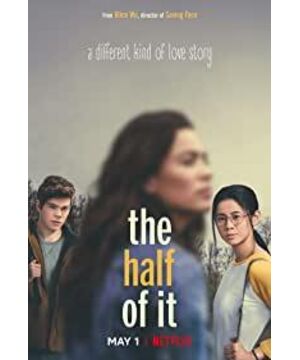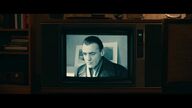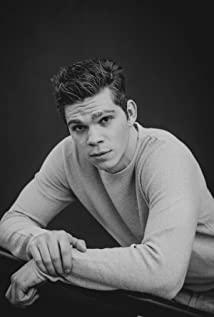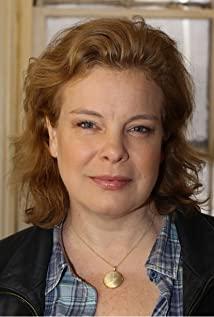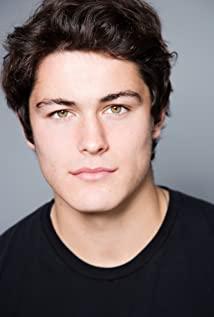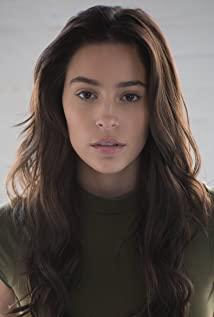By Hoai-Tran Bui Original : https://www.slashfilm.com/alice-wu-interview-the-half-of-it/ https://cinephilia.net/76666/
In 2004, Siwei Wu directed her lesbian romance "Saving Face," which was inspired in part by her own coming out, before she left the industry to take care of her mother, thinking she would never again be. No more Hollywood.
"I was literally living my own life, and reconnecting with my mother as an adult was a very fulfilling time," Siwei Wu said in a phone interview ahead of the premiere of Netflix's "The Half of It." Li told us this, and it has been 16 years since her last feature film "Face". But the story of Half-Hearted, a charismatic teen romantic comedy based on Cyrano de Bergerac (1990), has been in her mind for years, but added On the LGBTQ turning element. "The story of "Half Understanding" was thought up by me eight or nine years ago, and it has been lingering in my mind. I have never filmed this story, nor even wrote it." Wu Siwei said.
But a few years ago, there was a sudden epiphany in her life, Wu Siwei said: "My mother's health has improved, and I have just come out of a relationship that has lasted for a long time, and I kind of realize what the hell I've been doing with my life. For example, should my role in life be to try to be someone else's good daughter or good girlfriend? Is there anything else I can do? At this point, I started writing again."
Wu Siwei's thoughts in her personal life are well reflected in the script of "Half Understanding", which is a growth story about the heroine Ellie Chu, a young Chinese-American girl who is accepting her own sexual orientation. Similar to the story of Big Nose, Stupid Paul Munsky asks Ellie to help write a love letter to a popular girl at school, but she begins to fall in love with the girl and develops an unusual friendship with Paul. . The script brings Wu Siwei back to Hollywood after a 16-year hiatus, but the story is not about showing a good relationship, but about the idea she has been struggling with: whether romantic love is the ultimate ending for each of us.
"Our society respects romantic love, just like the wedding is the happiest day of your life." Wu Siwei said, "But what about the days after that? Could it be that after the wedding you will not be so happy for the rest of your life? From my experience , life really isn't like that."
Siwei Wu spoke with us about how "Half My Heart" is upending the concept of romantic love and soulmates, and why her films are more than just modern adaptations of "Big Nose Lovers."
In 2018, the script of "Misunderstood" was listed on the "blacklist" of Hollywood scripts. It has been 14 years since your last debut, "Face". Can you tell us about the process of creating Half-Understanding, and how it brought you back into directing?
Wu Siwei: I left the creative industry 10 years ago to take care of my mother, and I thought I would never be a director again. After the release of "Face", I have been writing manuscripts steadily. I had just sold a script proposal to NBC and my mom had a serious health problem and I gave up everything and moved to San Francisco. A month later, I felt like I would never be able to return to the industry, just settle down here, and I was lucky enough to be financially able to support my life at the time. I felt that now that I had enough money saved, I could make a living by investing as long as I managed my finances, and I could take the time to really focus on my family and help out with things. I was literally living my own life, and reconnecting with my mother as an adult was a very fulfilling time because I hadn't lived in the same city with her since the '60s. So during that time, I didn't write anything.
The story of "Half Understanding" was thought up by me eight or nine years ago, and it has been lingering in my mind. I have never filmed this story, nor even wrote it. Then, about a few years ago, all of a sudden, I had an epiphany when my mom was getting better and I was just coming out of a relationship that had been going on for a long time, and I kind of realized, what the hell am I doing with my life? For example, should my role in life be to try to be someone else's good daughter or good girlfriend? Is there anything else I can do? At this point, I started writing again.
Just that month, a studio friend who had always wanted to work with me out of the blue emailed me asking if I could write a script proposal for one of her projects, since she's now at DreamWorks Animation. I wrote the proposal, and I got selected, and I wrote for DreamWorks for 9 months, and it was so much fun, it went so well, they just wanted me to write something else. I don't think I've written my own work since "Face". So three years ago, when I finally got down to work, I was going to write this script.
I wrote for about a year, but for half a year, I didn't write anything because I was overwhelmed by the 2016 election. I can't write, I just search endlessly for what Trump is doing and don't write anything. Then 6 months later, the supervisor happened to call again and said, "Are you done? Or do you need to re-sign the contract?" And I didn't write anything. That's when I thought, well, I should take this job because I like to always meet external deadlines, but obviously I'm always procrastinating on my own set deadlines. I had a limited time to do it, so I wrote a check for $1000, made payable to the NRA, I gave the check to my best friend CJ, and she promised me that if I couldn't finish the script, I would send it to American Rifle Association. I gave myself five weeks to complete the first draft, and the deadline was August 8th. Possibly a bad first draft, but it has to be a complete one. Those were the five most stressful weeks of my life! If I donate money to the NRA, I really can't take it. Finally, I finished writing the script on August 7, then put it on hold for a month, and then spent five months slowly revising it. Finally, the second draft came out, I sent it to the writing team, they thought it was good, then I sent it to the people in the industry, and they passed it on to others. This is the final version of the script. This is my creative process.
There are similarities between the story of "Happy Heart" and "Big Nose Lover", and there is a 2018 teen romantic comedy "Sierra Burgess Is a Loser" also produced by Netflix. , which is also a modern adaptation of the story of "The Big Nose Lover". Have you ever worried that someone would compare Half-Heartedly to that film?
Wu Siwei: I wouldn't worry, because the two films are so different. "Big Nose Lover" is a fairly classic story that has had many adaptations over the years. Maybe it's because I'm already in pre-production, and I've watched Cerla Burgess is a piece of crap and thought the movie was cute, but it's nothing like my movie. But I also don't think my story is just a classic Big Nose Love Story. I want to subvert many different types of classic movies. For example, there are also elements of "Pygmalion" (the king of Cyprus in ancient Greek mythology, he fell in love with a young girl in his sculpture), and also mentioned Plato's "Symposium" , about the idea of finding your other half. But I wouldn't even say it's a rom-com, you feel like a rom-com at first, but the movie is actually teasing you.
By the middle of the film, it starts to subvert the romantic comedy genre, and the end is not about who ends up chasing the girl, the whole film is actually about the idea of "finding the perfect partner." At a certain moment, you seem to realize that it is not to find the perfect path that belongs to you. At that moment, you realize that you are approaching but not successful, but you have connected with others along the way, collide with each other. In this story, the three of them would not have had any interaction, but the story made them connect, and they all ultimately influenced each other. By connecting with each other, each of them ultimately gains something that allows them to move on and become who they want to be. So while there's a lot of literature in the film, it actually subverts the genre and modernizes the story.
Yes, the story of "Love with a Big Nose" itself has not been highly evaluated in recent years, because the story is a bit old-fashioned and outdated and cannot keep up with the times. However, "Half Understanding" is quite avant-garde, completely improving the level of the original story.
Wu Siwei : Yes, very interesting, right? In fact, the essence of the story of "Big Nose Lover" is that a person who thinks he is not good-looking helps a handsome but somewhat stupid handsome guy to chase the girl he likes. But what is more poignant for most of us in our society is that we don't have a big nose like the inferior man in the "Big Nose Lover" story, and nothing so exaggerated to attract attention. What's interesting to me is that some people feel like they can't express themselves because they're struggling with their budding sexuality and gender identity, and can't even define themselves as gay or not. But they feel that having a crush on another girl needs to be kept secret, and then use a handsome guy to get close to the girl, which is a classic romantic routine. So for me, this film is about talking about a lot of different social issues, not just about sending a message.
Your first film "Face" was inspired by your own experience of coming out of the closet. Does "Half Understanding" also involve your personal experience?
Wu Siwei: It can only be said that the stories are somewhat similar, but "Face" is not based on facts, and nothing in it really happened to me. Likewise, nothing really happened in "Half Understanding". Of course some details did happen, like I was called "Chugga Chugga Chu" (as in the movie) since I was a kid. There are indeed some details that represent immigrant children, so the authenticity of the film is that I try to make the characters live as realistically as possible, but the plot is completely fictional.
All inspiration comes from my life, like "Face" is what I want to tell my mother, I don't want her to think her life is over, she was 48 at the time, I want her to think she can still fall in love, and many more Love is waiting for him. In the same way, I wanted to explore the concept of "love" for myself in "Half My Heart", and we all felt like we wanted to find romantic love, and then life would be complete. But as I get older, there are so many ways to love that I never knew before. Romantic love isn't the most sublime kind of love, but various stories tell us that it seems to be. Our society honors romantic love like a wedding is the happiest day of your life. But what about the days after that? Is the rest of your life less happy after the wedding? In my experience, life really isn't like that. Romantic love is beautiful, and pursuing any kind of love is great, but life can also have deep friendships, and some of them can have a big impact on a person's formative years. So, I especially wanted to tell love by telling the friendship between a lesbian and a straight guy. Just imagine that you meet someone who feels like a soul mate, but doesn't have the desire to have sex, but you still have this deep intimacy, right? So I wanted to break the tradition of romantic love from this point of view, and once the story is set in high school, all the characters and parts of the story are smooth and clear.
So in the beginning, you didn't think about making a movie about teenage high school students?
Siwei Wu : Yes, at first I thought it was a story about someone in their 20s. But when I wanted to write, I realized that it was a little hard to write. Then at a certain point, I decided to set the story in high school. Because in high school, every time it felt like the first time you felt it was the last time. So everything is elevated and a lot of emotional territory can be discussed very lightly.
I noticed that in Half-Heartedly, faith plays an important role. The background of the story is in a small Christian town, the protagonist has her own relationship with faith, she is an atheist. And straight man Paul is a very staunch Christian. Why did you put the religious element at the heart of Half-Heartedly? Be aware that religion is an unusual element in teen romantic comedies.
Wu Siwei : In marketing, it can be said that this is a teenage romantic comedy, but in fact it is not, it's just that the protagonist in it is a teenager. In fact, I think we're always going to be teenagers again when it comes to love. So the theme of the story is actually quite mature, whether you are 16 years old or 60 years old, you will face the problem of love, and it will recur. And the religious element is because it's something I think about a lot, but it doesn't reflect very often in daily life, it's actually a big part of many people's lives, especially when the story is set in a rural town, which It is common for people in small towns to gather around a certain denomination of a church.
And for me, whether or not God exists is a question I often think about. I'm not sure if God exists, but I prefer to choose to believe that the universe has its own order. Because I spent so much time thinking about it, and it's actually what got me back into writing, I didn't write for seven years. Although I didn't grow up in an organized religion, my mom would go to a Chinese church and I really see that it gave her a certain level of peace. I have been praying since I was a child. And when my mom was sick and was in and out of the hospital, I was thinking about religion a lot, and I was making a bet that there was something bigger outside the universe. That's what I thought at the time, maybe I'm taking the initiative to think about religion and tell that larger being outside the universe what I'm thinking about, what's important to me, and that being might hear my prayers. But I often find that even my most atheist friends have no way to comfort them or make things better when they're going through something difficult. So sometimes I tell them I hope you don't mind, but I can only pray for you and all will find comfort. I'm a total atheist, but I believe there's a bigger thing out there that we all have in common. I don't know which god it was, or an energy in the universe, but I chose to believe it existed, and I think that's where a lot of the stories started.
So, I guess the religious element just permeated organically to these kids in the story and the dialogue I wrote for them, because that's what I was thinking about.
Another major element of the film is the concept of soulmates, platonic or not, and the idea that people spend their entire lives searching for their other half. And people think soul mates are something that is meant to be, just like they think religion is too. So how are the concepts of religion, destiny, soulmates intertwined in your films?
Siwei Wu : I think this question may be a little too big for me to answer concisely. I personally feel that we will meet many soulmates, but none of them are perfect soulmates. If we feel we have to find the perfect soul mate, it can cause us a lot of pain. We should think more like this: there are some people who you will think that it is absolutely impossible for them to be the ones who can bring you harvest. For example, Ellie in the story thought that Paul could never change her life. But at the end of the story, Paul became the one who changed Ellie's life. Maybe Ellie changed Paul's life as well, the relationship between these two is very strange, and I love that, that's my philosophy of life.
As for religion, I think just like love in the traditional sense, Plato's "Symposium" is an ancient Greek story about how we have to find the perfect other half. People keep telling us that's what love is, but maybe at some point, we can find the one for us. I think maybe the movie is saying those organized religions are a bit oppressive, and that's true for Aster, and she mentions that a lot, but that doesn't mean she doesn't have faith. I think Aster has faith, but I think she's starting to find a faith for herself, a faith in herself, that will allow her to continue to have a relationship with God and to continue to live without having to live her life completely religiously centered . I think what the movie is about is that we're all looking for great romance, but sometimes what we end up with is a connection to someone else. It might surprise us at the end of the movie that no one gets what they wanted in the first place, but everyone gets what they have to be a better version of themselves. It's all pre-planned and not your typical rom-com story.
View more about The Half of It reviews


